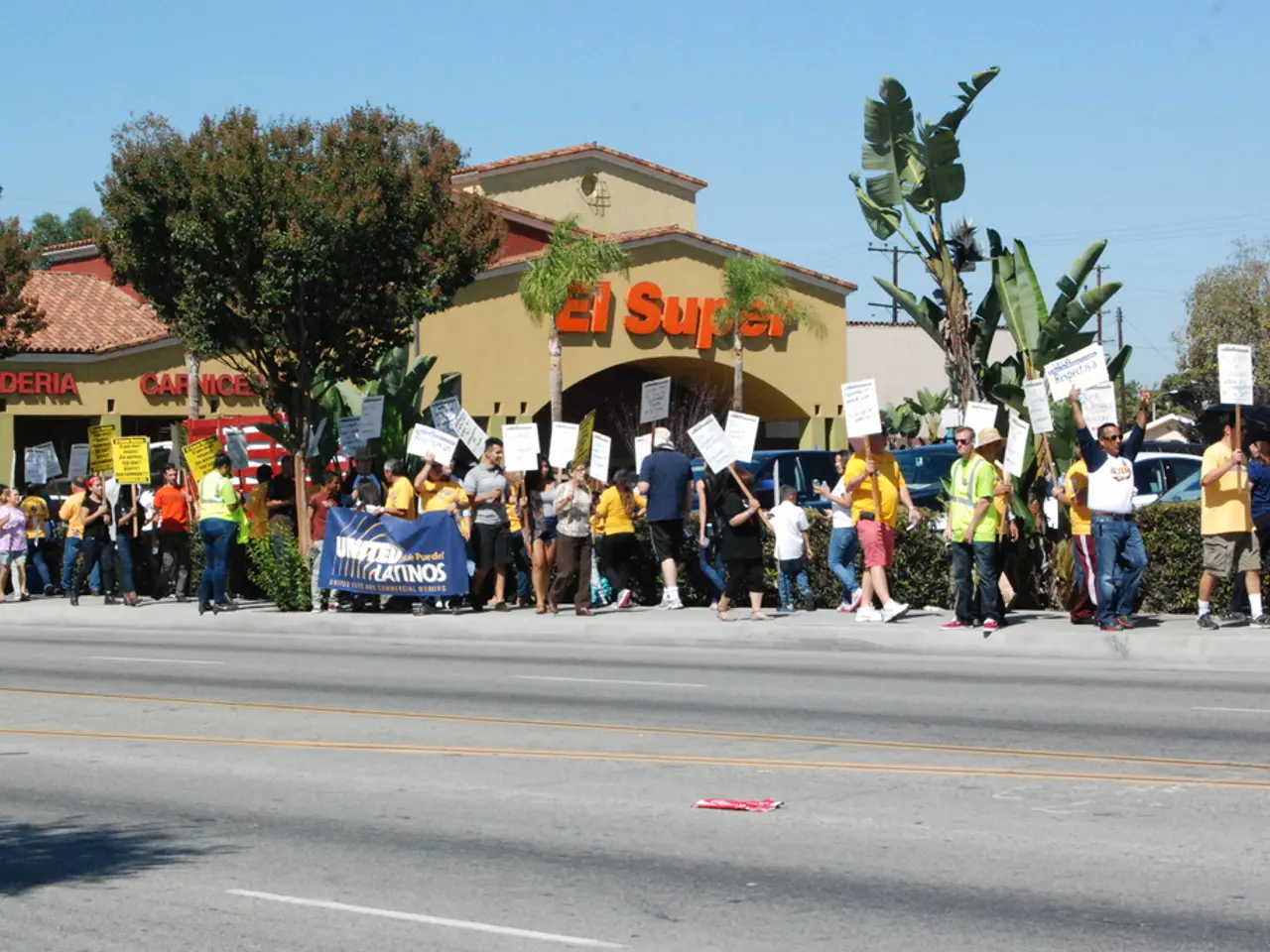Declining Clout of U.S. Political Parties
In the recent elections, a notable trend has emerged: young Americans are increasingly distancing themselves from traditional political parties. This shift, as reported by various research institutions, is driven by a variety of factors, including the rise of social media and the emergence of loosely organized social movements.
According to the Pew Research Center, 48% of millennials (ages 18-33) identify as independents. This figure is almost as many as those who identify as Democrats (28%) and Republicans (18%) put together. This trend is not unique to the United States, as the European Social Survey (ESS) indicates that young Europeans' trust in parties has risen and surpasses that of older Europeans.
One of the reasons for this shift could be the changing nature of political engagement. The campaign finance reforms of the 1970s restricted the parties' ability to raise and spend money. As a result, candidates and outside entities, such as the Koch brothers' political network, which employs 3.5 times as many people as the Republican National Committee, have taken on a more significant role in funding campaigns. The Supreme Court's decision to allow candidates and outside entities to spend as much as they want has further exacerbated this trend, leading to parties doing very little in terms of direct outreach to young people.
This lack of involvement from political parties may lead young people to ignore them. Candidates like Obama in 2008 and Sanders in 2016 have engaged a lot of young people, but the parties weren't doing this outreach. By 2014, fewer than one in 40 young adults actively participated in a party, a stark contrast to the high levels of engagement seen in previous elections.
Young Americans are growing up in an age of social media, which prefers loose networks that allow individuals to personalize their views and form and shift relationships freely. Loosely organized social movements like Black Lives Matter or Spain's Los Indignados allow participants to express their personal views and connect to peers they most like within the movement.
An example of this trend can be seen in the case of Los Indignados, which began as a decentralized online social movement but has morphed into a political party, Podemos, that holds the third-largest number of seats in the Spanish parliament.
While young Americans are still spiritual, as pollster Anna Greenberg notes, they are not drawn to traditional religious institutions. Instead, they prefer to express their beliefs and connect with like-minded individuals in a more personal and flexible manner.
As the landscape of political engagement continues to evolve, it is clear that political parties must adapt to remain relevant to young voters. Whether this means embracing social media, supporting loosely organized movements, or rethinking their approach to campaign finance, the future of political parties will be shaped by their ability to engage with young people.
Read also:
- Impact of Alcohol on the Human Body: Nine Aspects of Health Alteration Due to Alcohol Consumption
- Understanding the Concept of Obesity
- Lu Shiow-yen's Challenging Position as Chair of the Chinese Nationalist Party (KMT) Under Scrutiny in Donovan's Analysis
- Tough choices on August 13, 2025 for those born under Aquarius? Consider the advantages and disadvantages to gain guidance







